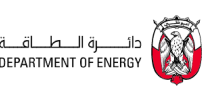The Abu Dhabi Judicial Department, ADJD, announced that it has started implementing the directives of His Highness Sheikh Mohamed bin Zayed Al Nahyan, Crown Prince of Abu Dhabi and Deputy Supreme Commander of the UAE Armed Forces, concerning the suspension of rent evictions and any executive proceedings related thereto, and of enforcing any new civil and commercial judgments for a period of two months from the date of the decision.
In a statement, ADJD indicated that it responded immediately to the directives of His Highness Sheikh Mohamed, and took all practical actions to put these directives into immediate effect.
The Department noted that all rent evictions have been suspended and no enforcement cases to be filed in this regard. Besides, all executive procedures related to civil cases are halted, including the capture, seizure and arrest of people, the blocking of bank accounts, and the garnishment of vehicles, stocks and properties. However, the decision exempts cases related to alimony and labour disputes, it explained.
Counsellor Youssef Saeed Al-Abri, ADJD Under-Secretary, noted that the Judicial Department issued the necessary decisions for the immediate implementation of these directives, adding that such actions are a practical example of UAE values that highlight humanity and tolerance. He praised the UAE leadership’s keenness to provide all forms of support to members of society, by mitigating the burdens resulting from the current situation, and facilitating the economic pressures incurred by some groups.
The current crisis witnessed throughout the world is a true test of the governments strength and capabilities to manage their countries in various circumstances, he added.
Al Abri praised the authentic and humanistic approach taken by the wise leadership, which looked after troubled tenants, and ensured that they remain in their homes in a safe and dignified manner, giving them sufficient time to fix their conditions in a manner that preserves the right of landlords.
The government looks after families as well, as the directives exempted the judgments of alimonies to ensure the continuous support of their needs as necessary for a decent life. In the same context, the labour enforcement cases are excluded from the decision to ensure workers obtain their financial rights.







